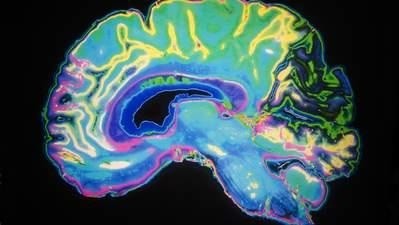Poor oral hygiene has long been associated with coronary heart disease, but is there a connection between bad brushing habits and Alzheimer’s disease? Scientists seem to believe there is.
Although hygiene habits as a whole tend to suffer in Alzheimer’s patients, dental tartar is now being identified as a possible pathogenic cause of amyloid plaque formation, a classic symptom of Alzheimer’s disease, in the brain. Researchers now theorize that these amyloid plaques may form as a defense response to bacterial intrusion in the brain.
The brain has one of the most effective defense systems in the human body, namely, the blood brain barrier, which prevents pathogens and other substances from crossing over into brain tissues; however, there are still certain pathways that allow entry into the brain, like the olfactory and trigeminal nerves. Oral treponema bacteria found on the trigeminal nerves in cadavers showed that bacterial invasion via nerve pathways was possible; researchers believe that this increased permeability in the blood brain barrier may result in a thickening of proteins around the neural pathways of the brain, similar to how arterial plaque develops in arteries.
Additionally, certain markers in Alzheimer’s patients’ bloodwork, like Interleukin-6, were found to be considerably higher than non-dementia patients. Interleukin-6 is strongly associated with the production of the amyloid proteins that make up Alzheimer’s lesions.
Of all periodontal bacteria, P. gingivalis is believed to be the key pathogen with the ability to bypass inflammatory signalling cascades, which are alarm systems that tissues have been compromised by an invading substance. Once P. gingivalis has snuck past that watchdog, other pathogens can follow, creating inflammation in the brain, and eventually, dementia.
Although the oral hygiene/Alzheimer’s connection hasn’t been thoroughly researched, there is strong reason to believe that the simple action of brushing and flossing one’s teeth may prevent Alzheimer’s disease and other forms of dementia caused by amyloid plaques.








